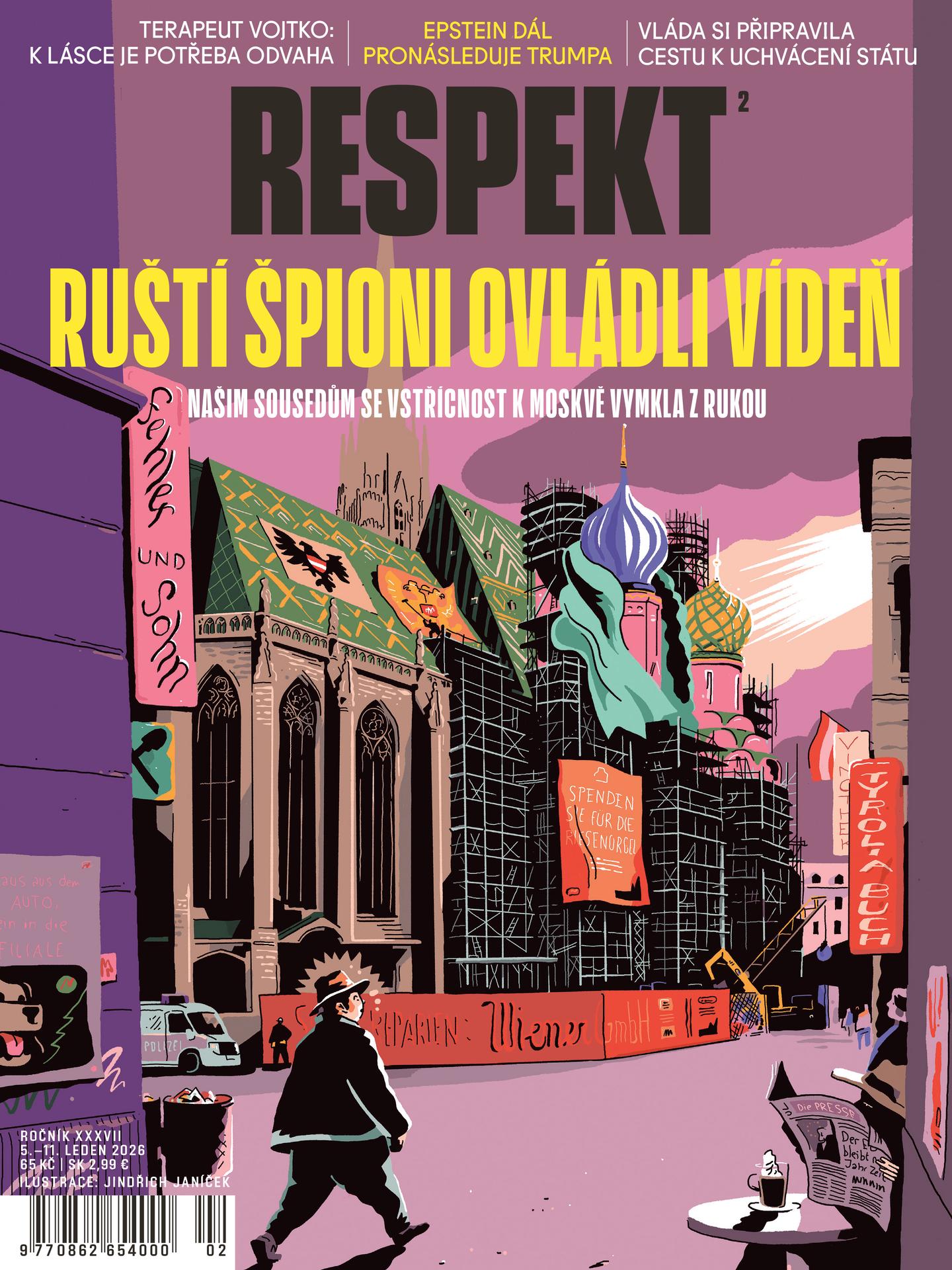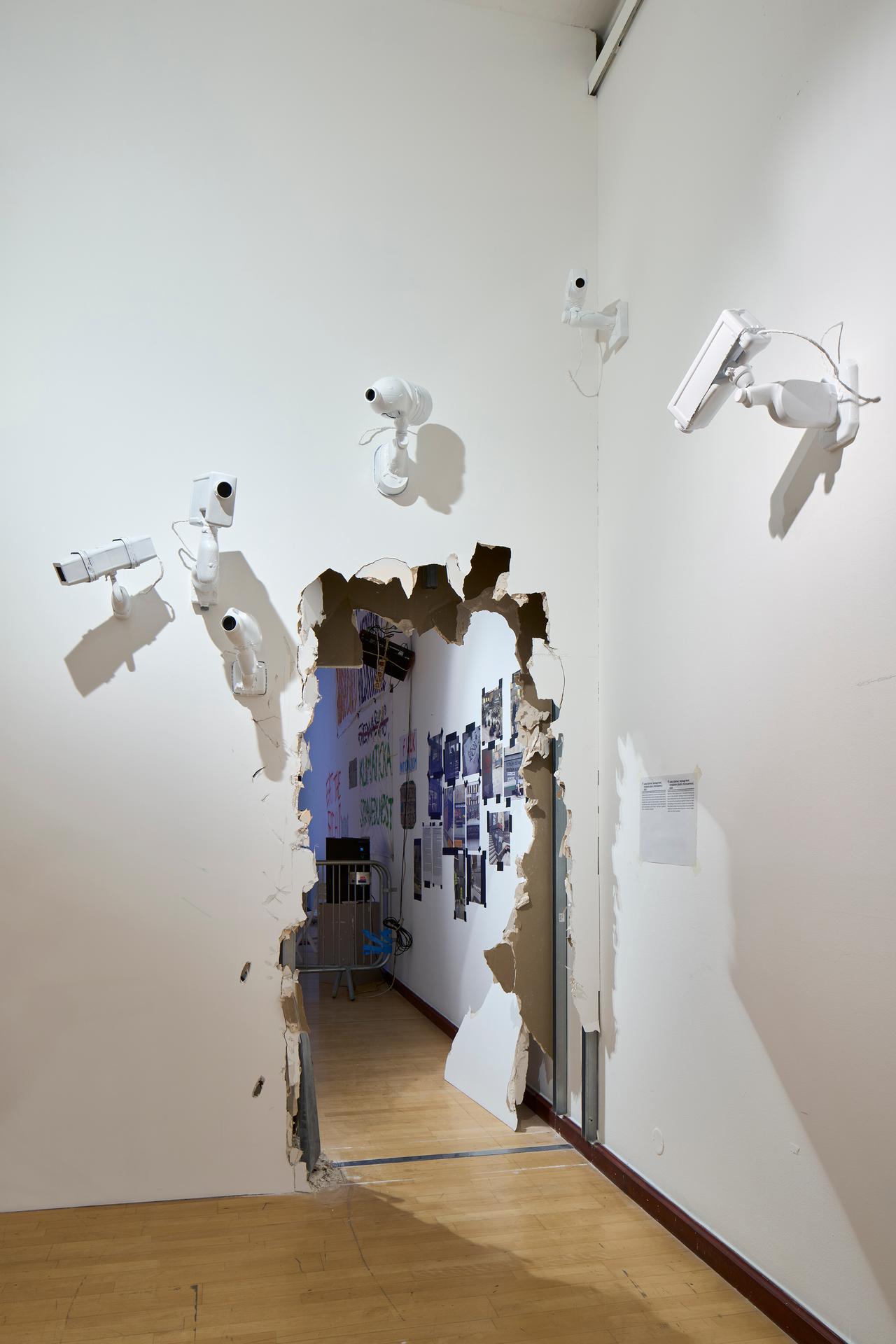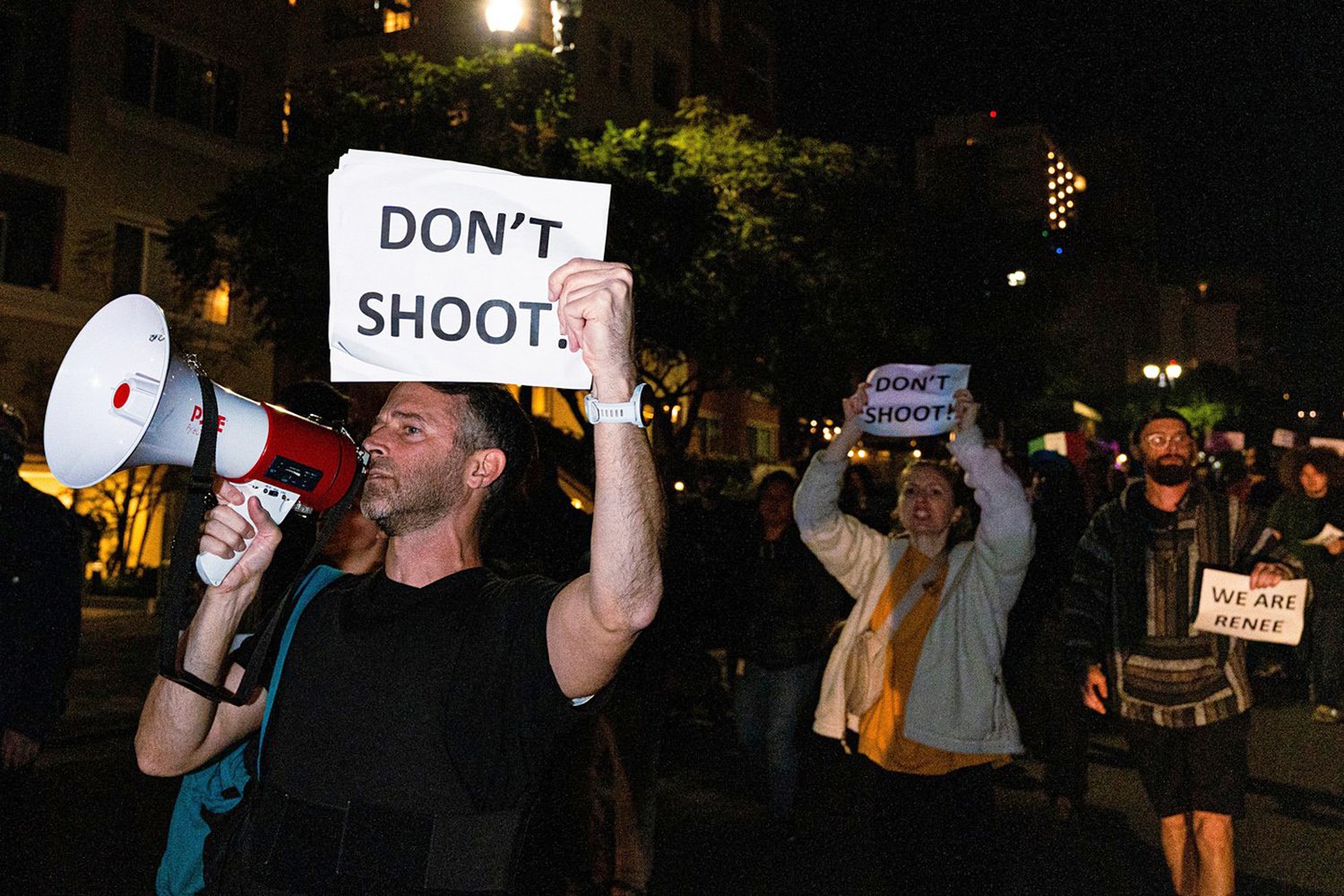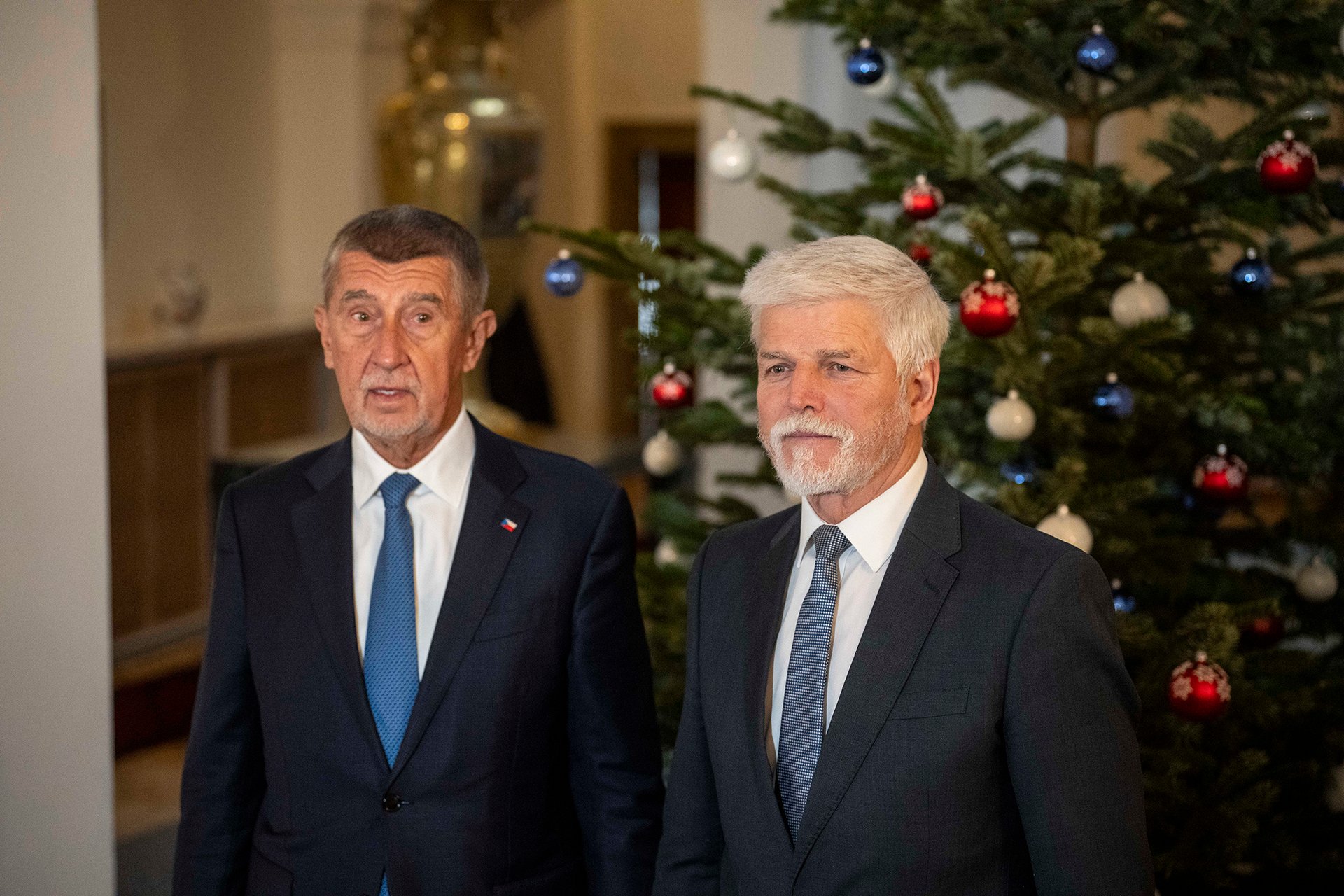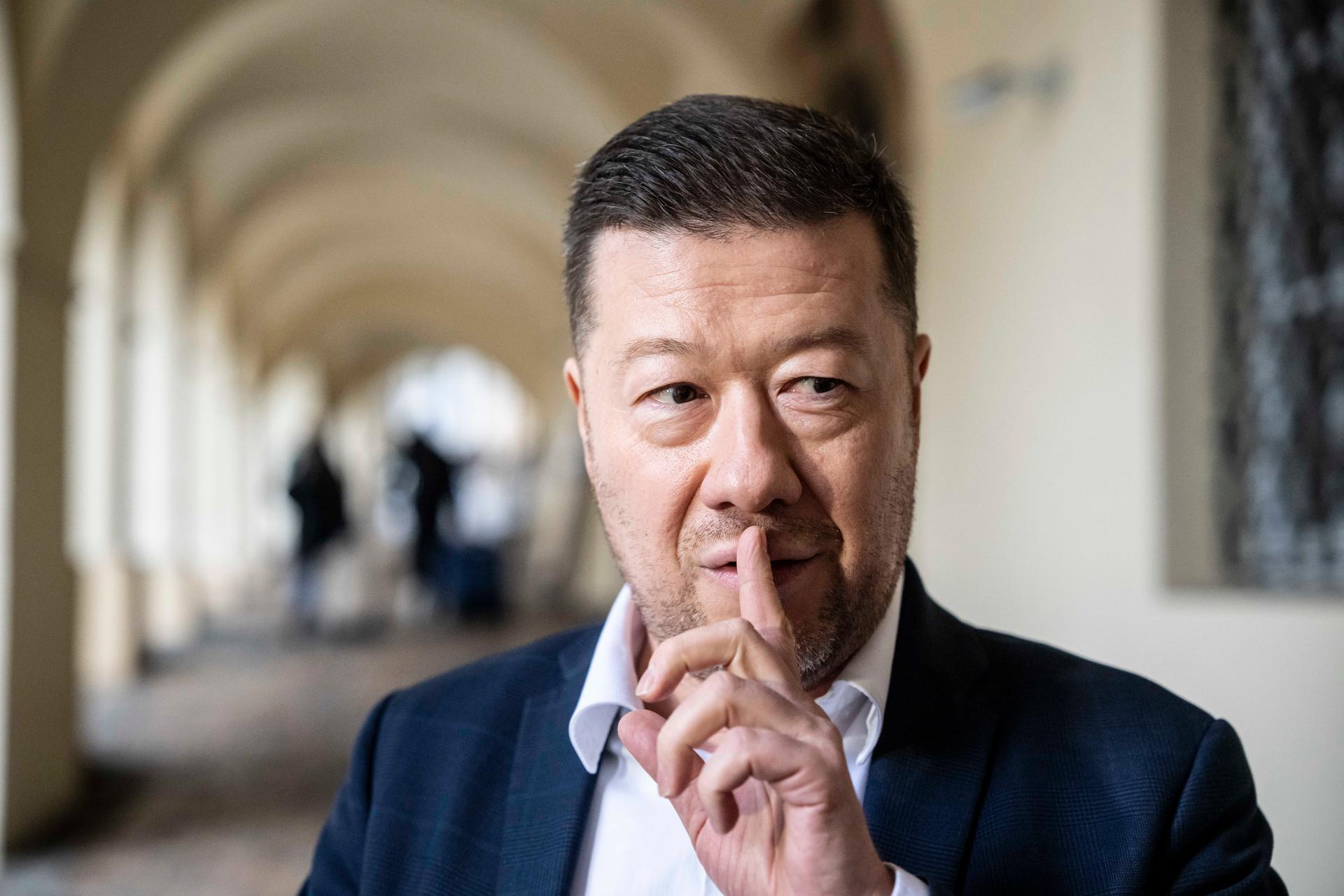A Fake Dog at Strakovka
The story of the biggest police raid in the history of Czech politics
Translated by Lani Seelinger
As Head of the Unit for Combating Organized Crime (ÚOOZ) Robert Šlachta walked through the gloomy hallways of the Cabinet Office last Wednesday night and drew closer to Prime Minister Petr Nečas’ office, he was nervous. Although he had been through many stressful situations in his professional life, this was still a completely exceptional moment for him. “Questions about how it would go with the prime minister were running through my head. Whether there’d be conflict, what would happen, what it would set off,” said Šlachta.
His stress was wholly appropriate. After an investigation lasting a year and a half into corruption and plotting in the government, Šlachta’s network of detectives had ensnared the prime minister’s closest coworker – his chief of staff, and also his girlfriend – Jana Nagyová. This is what Šlachta was now going to Nečas to announce, in addition to how he needed to immediately search and seal her office. When Šlachta opened the doors to Nečas’ study, into which he had previously requested entrance, he sat down next to the premier, Minister of Justice Pavel Blažek, and Head of the Interior Jan Kubice.
Both remained silent, as did the premier for most of the time. Šlachta explained to him that the police suspected Jana Nagyová of bribing three rebelling deputies to not carry out their threat to resign over the rejection of laws of the government, and that they had proof of the unlawful use of one of the secret services to follow Nečas’ wife. According to witnesses present, the premier was visibly taken aback by the information, but still, when he and Šlachta parted, he told him, “Do your work.”
„This really is a historic milestone. We freed the police’s hands, and I firmly believe that they have this properly nailed. If not, it would be a coup over the security forces, which would completely ruin the laboriously restored trust in the police and the public prosecutor.“
Immediately afterwards, a police task force entered the Cabinet Office, and, over the next 24 hours, 400 policemen carried out raids in various parts of the country. Besides the arrest of Nagyová, the result was the detention and subsequent charging of the former and current head of Military Intelligence and three influential former deputies (on Saturday the court sent them into custody, besides General Kovanda). The biggest police raid in the top spheres of Czech politics had thus entered into the deciding phase.
A Secret Operation
Originally, the arrests were to take place at the end of last week. However, an unexpected event sped everything up. A ÚOOZ informer brought the information on Wednesday that one of those later accused – former assistant at the Ministry of Agriculture Roman Boček – was preparing to travel to Spain.
Šlachta was already standing by the elevator when his phone rang with the information that it would be necessary to change the plan. He returned to his office in Zbraslav to discuss how to progress further with his colleagues. They thought that it was very probable that Boček would not return to the Czech Republic, so they would have to speed up the raid.
On that account, Robert Šlachta dialed the number of Olomouc chief prosecutor Ivo Ištvan, who had supervised the case from the beginning, and informed him about the new events. Ištvan was also at that moment – about 200 kilometers away – on his way home. Because of the news from Prague, he changed his plans with his family and, in front of his house, just switched into a service car, where another state deputy was already sitting. Together, they set out for the capital.
Even though this was probably the biggest case in the prosecutor’s many year long career, Ištvan apparently did not address much immediately before the operation’s launch. “We’ve been working on this for a long time, we’ve had things settled in our minds, including how high we’re aiming. Instead I used the night trip to Prague for a nap, because I knew that while we’d be doing searches over the next few days, there wouldn’t be much time for that,” explained Ištvan.
Shortly afterwards, when the prosecutor made it to ÚOOZ headquarters around midnight, he quickly conferred one last time with Šlachta, so that Šlachta could directly give him the instructions for the launching of the extensive raid. One of the first for whom the police came that night was the prime minister’s right hand, Jana Nagyová. Police detained her right at the Cabinet Office and did a search of her house that night as well. They then took her and all of the other suspects out to the special police facilities in Prague’s Hrdlořezy.
“We freed the police’s hands, and I think that they have this nailed. If not, it would be a coup over the security forces.” (deputy Hruska)
Similar to the case of David Rath, who a special police team under the supervision of prosecutor Lenka Bradáčová arrested with a several million-crown bribe in his hands, the case of Nagyová and the others was kept in strict secrecy until the last moment. Information about it did not leak out to the public and so did not thwart the investigation.
“We didn’t tell the internal police information system about the things we’re doing so that it wouldn’t break out prematurely,” said Šlachta. Not even senior policemen or the high representatives of the police or the Ministry of the Interior knew anything, which is testified to by the fact that even First Deputy Minister of the Interior Jaroslav Hruška only learned about the operation from the ÚOOZ press conference, which he was following in his office at the exact moment when the editors of Respekt arrived there.
“This really is a historic milestone. We freed the police’s hands, and I firmly believe that they have this properly nailed. If not, it would be a coup over the security forces, which would completely ruin the laboriously restored trust in the police and the public prosecutor,” said Hruška about Thursday’s press briefing, during which ÚOOZ officially confirmed their unprecedented investigation for the first time.
After Janoušek
The case started in the spring of 2011. Back then, the Supreme Public Prosecutor’s Office tasked Robert Šlachta and his team with investigating who had revealed the name of a secret witness in the case of an overpriced purchase of Pandur armored vehicles. Supervision over the investigation was entrusted to Rostislav Bajger, head of the Ostrava branch of the Olomouc Public Prosecutor’s Office, and his superior Ivo Ištvan.
The search for this finished in failure, because they could not uncover the name of the person who had leaked the secret information. The effort, however, was probably not completely useless. Robert Šlachta and Rostislav Bajger’s primary suspect for disclosing the witness’ name was the assistant of the Supreme Public Prosecutor’s Office in Prague, Libor Grygárek.
That is, the man under whose supervision they did not investigate cases where powerful people were concerned. The court agreed to let the police get the listings of his phone calls, and then they had it in black and white: a few times a month, Grygárek had been calling and texting with the famous Prague lobbyist Roman Janoušek and many other influential people in politics and business.
In a later examination of the files that Grygárek had under his care, detectives also discovered that he had been the one who prevented the investigation of how two billion crowns had come into Janoušek’s Swiss account three years before. Even the Swiss didn’t know the origin of the money, and furthermore, two high officials of the Prague magistrate, then well-known friend of Janoušek’s Pavel Bém, had the right to sign for it. Grygárek’s official answer to Bern stopped any attempts at investigation – “No prosecution against Roman Janoušek is known of in the Czech Republic, the money can’t have come from criminal activity.” Beyond that, the Swiss could do nothing.
“And then it started. We postponed leaking the investigation, because we didn’t have enough evidence to prove things. However, we started to check out Roman Janoušek in connection with the Swiss trail along with Mr. Bajger. It was suspicious to us that he had gotten so much money. And soon, we figured out that what the media had been writing was true. Mr. Janoušek really was part of a very broad clientelistic network, with connections between businessmen and public administration and maybe even with politicians,” said Šlachta, describing the beginning of the investigation.
Of course, the police had means that the media did not. They could put together a rough picture of how the investigation was proceeding from various policemen and state deputies. Fixed wiretapping revealed that Janoušek was engaging in many deals regarding the assignment of public contracts and the filling of significant posts in public administration or even in politics. Police did not inform anyone about exactly what was happening. In any case, Janoušek’s wiretapping pulled more and more people into the game, thereby expanding the network of suspects.
After a half-year, the policemen and state deputies had hundreds of interesting pieces of circumstantial evidence. Besides Janoušek, they started to look into other lobbyists, like Ivo Rittig, Tomáš Hrdlička, or Jiří Toman, an influential official from Bém’s era. The detectives took pictures and recorded lots of meetings, recognizing the voices of their suspects. But at the same time, they still had one fundamental problem in that the search had still not brought in anything that would show beyond doubt that the suspects had committed any crimes.
“It was a lot of stress. The same hints, indications, but no evidence. We knew a lot of things, we had ideas about how the cooperation between the sponsors, politicians, and public administration was working, but none of it was strong enough to stand up before a court,” said one of the detectives to Respekt in June of last year.
An across the board investigation like that cannot go on forever without results, but fortune unexpectedly smiled on the detectives last fall. They had already been following aforementioned businessman Ivo Rittig for a month, and they knew that he regularly met with Premier Nečas’ chief of staff, Jana Nagyová (for example, Respekt had earlier witnessed him waiting in front of her office with a bouquet of flowers). Some of their suspects’ phone calls – we don’t know what the two of them talked about – made it possible to request that the court give them permission to monitor Nagyová. Immediately, the current surprising result arrived.
The Surveillance of Radka Nečasová
“Last October and November, Jana Nagyová engineered and directed an unauthorized use of military resources to monitor Premier Nečas’ wife Radka.” Such are the fresh allegations against the director of Petr Nečas’ cabinet. Engineering and directing it was simple. Nagyová agreed with then Head of Military Intelligence Ondrej Páleník, that because of her, the secret service would transform into a private security agency and would start to follow Radka Nečasová.
The first wave of arrests had ended. The second should bring many of the real sponsors into the ranks.
When Páleník left his position at the end of October, his deputy Milan Kovanda took over the role of Nagyová’s private eye, according to police. Nagyová was receiving information from both men (and from Military Secret Service officer Jan Pohůnek) about Nečasová, and later also about two more people from Nečasová’s and the premier’s circles. It was about her driver Jiří Pertl and an employee from the Cabinet Office, Alena Hegrová (Nagyová – who in the police recordings talks about them in coded speech as “dog food,” or about the Head of Military Intelligence, who the operation covered, as “the man with a fake dog,” and about her private eyes as “little moles” – could have wanted to blackmail them so that they wouldn’t let out the information about her relationship with the premier).
We don’t know why the heads of the secret service complied with her, though. The police have not explained that yet. It isn’t even clear if Prime Minister Nečas knew about the operation, but according to prosecutor Ištvan, the police are looking into this as one of many versions. Nagyová, who is accused of abuse of official power, faces five years in jail for following Radka Nečasová, as do both generals.
While monitoring Nagyová, detectives encountered upon further branches of the investigation – she was to be one of the organizers of last year’s agreements with three ODS deputies, Ivan Fuks, Marek Šnajdr, and Petr Tluchoř, who were faced by a vote against the government. The deputies finally received lucrative posts in state enterprises in exchange for resigning their mandates and clearing their spots for replacements who would support the laws. Police allegedly have wiretaps, recordings, and photographs to prove that it wasn’t a classic political agreement, but was instead corruption.
It must be said, that Tluchoř did not accept a newsstand. Nonetheless, police claim that he appointed his relative Libor Antoš for an offered post in České dráhy (Czech Railways). “It’s about a case of intangible corruption; in exchange for responsibility and accountability, the deputies accepted well-paid posts in lucrative state firms,” said Ivo Ištvan. Former assistant to the Minister of Agriculture Roman Boček was also charged in these matters, for mediating the agreement of bribes in the form of newsstands.
Abusing the secret service is illegal, as is profiteering with deputies’ positions for a fee. But something doesn’t jive here. At the end of a year and a half-long massive investigation, we have eight people charged and only two crimes. At the outset, Šlachta’s detectives received permission from the courts for all wiretapping and monitoring because they had suspicions about extensive criminal collusion and dirty money laundering.
However, we don’t find even one of these charges among all those accused. Police indicate that the situation could change. In the last few days, they carried out 30 home searches, from which they supposedly found around 150 million crowns and many kilograms of gold (belonging in particular to Roman Janoušek and Ivo Rittig) and a lot more evidence that will soon make it possible for them to charge more people. According to police sources, this time it will really be about the sponsors.
“We can easily call charging Nagyová and the others a side product of our investigation. Neither she nor, say, these three deputies were of our interest at the beginning. I would say that about a year and a half ago, we didn’t even know that they existed,” explained a detective who is taking part in the operation. “They illustrate for us how big this clientelistic connection is and how big of a reach it has.”
At the moment we can only speculate about the evidence that the detectives and state deputies have against people because of the operation that they started a year and a half ago. Janoušek, Rittig, and Grygárek were not charged, even though the police carried out searches of their homes. If they have some kind of evidence against them, they’re staying quiet about it for now. “We confiscated some materials that we have to examine more closely now,” said Robert Šlachta in response to a question about the results of the raids by 400 detectives and prosecutors.
Difficult times
Moments after the end of the press conferences, three top officials from the Supreme State Prosecutor’s Office in Olomouc are standing around in front of the office of the police presidium. They’re waiting on a car and patiently explaining to journalists that the “fee” for ex-deputy Tluchoř and two more of the accused people wasn’t an ordinary newsstand, as we know from the filling of positions at, for example, the Supreme Audit Office or the Office of the Ombudsman.
A while later, police presiding officer Robert Šlachta comes through the doors with his two assistants. In a moment his cellphone rings to the tune of the hymn “Ktož jsú boží bojovníci” (“Ye who are warriors of God”). His people are continuously informing him about the operation still taking place.
“Have you heard what the politicians are saying about us in the parliament chambers? Difficult times await us,” he calls to the prosecutor. “Except we have substantiated evidence for all of this, so they can say what they want.” Both groups get into the cars. “We’ll see you in a second, doctor,” says Šlachta to Ištvan, and heads to the ÚOOZ headquarters. Whether or not the investigators will return to the men around whom everything started, that is Roman Janoušek and Ivo Rittig (the ÚOOZ is already working with the American FBI, which should help with uncovering the movements of their money coming from what police say are illegal activities abroad), and whether they will face charges for business with the Prague transportation firm Lesy ČR or, for example, with the ČEZ company, still remains open.
The text was originally published in Respekt magazine 25/2013
Článek Umělý pes ve Strakovce vyšel v Respektu č. 25/2013
Pokud jste v článku našli chybu, napište nám prosím na [email protected].

